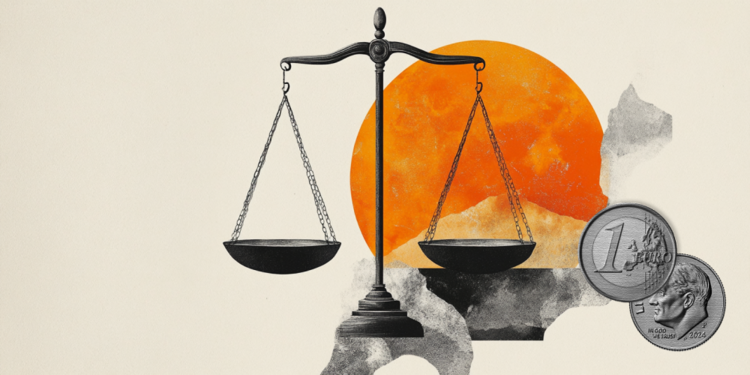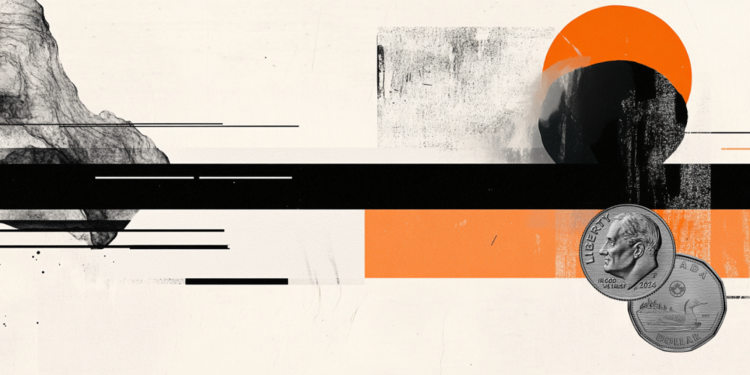THE queen elizabeth II died this Thursday (8) in Scotland, aged 96. The monarch became the sixth woman to ascend the British throne in February 1952, following the death of her father, King George VI. She was the oldest queen of all time with 70 years of reign.
In this long period of sovereignty, Elizabeth II accompanied the rise of 6 popes, attended 18 Summer Olympics and experienced several international political conflicts.
In an interview with CNN the professor of International Relations at FGV and FAAP, Vinícius Vieira, commented on some of these events that went down in the history of British and international politics.
Suez crisis
The first major crisis experienced by Elizabeth’s reign was that of the Suez Canal, in 1956, in which Egypt, under the inspiration of Arab nationalism, took over the canal that belonged to a Franco-British company.
In response, the United Kingdom and France considered sending troops to retake the canal, but they were blocked by the United States.
The failure proved that the United Kingdom would no longer be able to maintain its colonial empire – the kingdom had already lost India, South Asia and British India, which included Pakistan and Bangladesh, in exactly 1947.
Decolonization of some African countries
Elizabeth also witnessed the general decolonization of Africa, which includes the UK’s withdrawal from colonies such as Ghana and Nigeria. This is an important moment in international history because the non-Western world is finally freed from the game of colonialism.
In economic terms, the 1970s were bad for the UK. The main factor that should be pointed out is stagflation, which led to discontent during the winter of ’75, with popular uprisings and even the release of the famous Sex Pistols protest song – “God Save The Queen”, an unflattering version of the anthem. British, which makes reference to the hopelessness of opportunity of the 1970s.
Implantation of neoliberalism
In the late 1970s, under the leadership of Margaret Thatcher, neoliberalism, that is, deregulation, privatization and trade liberalization, was implemented in the UK.
The British process took place even before the advance of neoliberalism in the United States with Ronald Reagan, who came on the scene in 1981, while Thather took power in 1979.
Both formed a duo that, for better or worse, took on the socialist regimes of Eastern Europe. This movement went towards greater economic opening, deregulation and a whole series of actions that shaped the globalized world.
Cold War
The world of globalization is consolidated with the end of the Cold War. During the Gulf War, the monarch delivered a key address to the British population, clearly stepping back from her political duties as head of state.
In the 1990s, with the end of the Cold War and the Soviet Union, Elizabeth begins to witness a growing opposition to the image of royalty, largely due to what happens to Diana, Princess of Wales, who ends up passing away in 97.
From then on, Queen begins to adapt and regain popularity. According to reports from the royal family, Elizabeth realized that she needs to be very popular even if she was not so well received by the population.
2018 crisis
In addition to witnessing globalization consolidate, the Queen also saw the beginning of the crisis of the system, in 2018. Elizabeth accompanied her own country recovering economically, first with Margareth, then with the redistribution of resources and better public services in the Tony years. Blair of New Labor in power.
This, however, fell apart with the bad omens of politics, starting with the Scottish referendum, says Professor Vinícius Vieira.
Scotland referendum
The referendum was a consequence of the Scottish Nationalist Party’s rise to Scotland’s regional government in the early 2010s.
So, a referendum is called. David Cameron, then Prime Minister of the United Kingdom, accepts Alex Salmo’s request. With this, a challenge is born to the unity of the United Kingdom, an entity that has existed since the 18th century, with Scotland and England at the heart of this union.
At the time, the monarchy did not voice its opinion on Scottish independence. Some leaked sources in the tabloids indicated that obviously the queen would be against it, but that for her it would not be a problem, as Scotland wanted to remain a monarchy.
That is, Scotland would become a sovereign country without ties to London, with its own politics and military, but would keep Elizabeth as a head of state. Soon, it would become another kingdom, which for the crown would not be a problem, explains the professor of International Relations.
Today, that moment is seen as the beginning, even more than Brexit, of the decadence that the United Kingdom faced and was facing long before the Queen’s death.
Brexit
Behind-the-scenes tabloid talk indicated that the queen would not oppose Brexit, but the monarchy acted directly through a knock-on effect.
According to the interpretation of Professor Vinícius Vieira, Queen Elizabeth II made a controlled decline of the United Kingdom, which went from the status of the main world potential to a secondary power before giants, first the United States and the Soviet Union and, after the Cold War, the United States. , Russia and China, which today have more territorial, military prominence than the United Kingdom, France and company.
The British, especially the older generations who followed decolonization, grew up thinking that the United Kingdom, even though it had lost its status as an empire, still had great international prestige. This great international prestige is not a direct consequence of the Queen, but, in large part, it can be attributed to the reading that people make of Elizabeth as someone respected globally.
This image ended up contributing to people understanding Brexit as something that was viable, that is, that the United Kingdom would in fact continue to have strength outside Europe. Today it is seen, however, that the United Kingdom is going through many difficulties that cannot be attributed only to the pandemic and the war in Ukraine.
Pandemic
In the pandemic, Elizabeth II acted as a good example, encouraging distancing and vaccination.
Over time, the monarchy brought prestige to the United Kingdom, even after it ceased to be a colonial empire. Thanks to this nobility, the UK to this day has one of the best universities in the world.
Due to a tradition of academic research in the area of biology, especially medicine, they developed one of the main vaccines against Covid-19, the immunizer from the University of Oxford in partnership with AstraZeneca.
In Brexit, there is a negative indirect effect of the maintenance of the monarchy, but, in the case of vaccine development, this scientific capacity of the United Kingdom is a very positive consequence of the country, evaluates Vieira.
ukrainian war
The FGV professor recalls that there is a legacy of imperial times, because it was the United Kingdom that stimulated the fragmentation of Eastern Europe.
“Even Russians to this day resent attempts to promote Ukrainian independence in the context of the Russian Revolution. In the end, Ukraine joined the Soviet Union and underwent a communist revolution. So we have a kind of legacy from Elizabeth’s ancestors”, points out Vieira.
In other words, an unresolved territorial issue that precedes the Cold War itself, which is the issue of people’s self-determination.
“Oftentimes [a autodeterminação dos povos] it was used by the British not to defend these peoples unconditionally, but to create states that were in their interest. And clearly an independent Ukraine would greatly benefit the UK from its interests there, as well as the interests of Europeans”, adds the expert.
Source: CNN Brasil
I’m James Harper, a highly experienced and accomplished news writer for World Stock Market. I have been writing in the Politics section of the website for over five years, providing readers with up-to-date and insightful information about current events in politics. My work is widely read and respected by many industry professionals as well as laymen.







